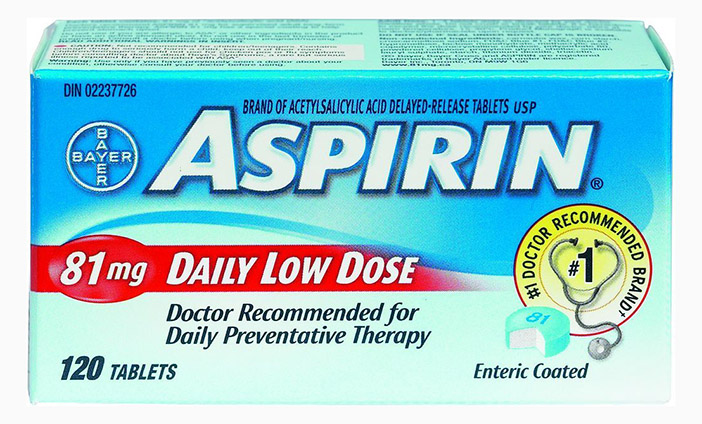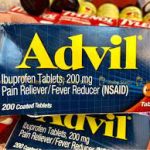How Long Does Baby Aspirin Stay In Your System

Aspirin is a common drug for relieving minor aches, pains, and fevers. People also use it as an anti-inflammatory or a blood thinner. People can buy aspirin over the counter without a prescription. Everyday uses include relieving headache, reducing swelling, and reducing a fever.
Taken daily, aspirin can lower the risk of cardiovascular events, such as a heart attack or stroke, in people with a high risk. Doctors may administer aspirin immediately after a heart attack to prevent further clots and heart tissue death.
Millions of American adults for years have been taking a daily low-dose aspirin — or baby aspirin as it’s commonly known — to prevent a heart attack or stroke.
But many older adults who are not at elevated risk for heart attack or stroke should not start taking daily baby aspirin, according to new proposed guidance from the U.S. Preventive Services Task Force.
That’s because the bleeding risks associated with taking daily baby aspirin increase as people get older and can outweigh the protective cardiovascular benefits for those who have never had a heart attack or stroke.
How long does Baby Aspirin last, and how often can I take it?
Generally, it takes about 10 days for the effects of aspirin to wear off after a person stops taking it. Your health care provider will likely discuss what aspirin dose is right for you. Low doses of aspirin — such as 75 to 100 milligrams (mg), but most commonly 81 mg —can be effective at preventing heart attack or stroke. Health care providers usually prescribe a daily dose between 75 mg and 325 mg (a regular-strength tablet).
How long does Baby Aspirin stay in your system?
There are several factors that come into play when estimating how long Baby Aspirin will stay in your system because every patient has physiology unique to them. Here are some major factors you should consider when trying to understand how long Baby Aspirin will stay in your body:
• Age: Typically, the younger you are, the more efficient your body functions are. The more efficient your body functions, the faster Baby Aspirin will be removed from your system.
• Amount: The higher the dose of Baby Aspirin you have been taking, the longer Baby Aspirin will take to be removed from your system.
• Genetics: Genes predispose people to different metabolic functions, which is a key factor in how your body processes medications like Baby Aspirin. For this reason, your genetic makeup comes into play when estimating how long Baby Aspirin will remain in your system.
• Kidney and liver functions: The liver and kidneys eliminate everything you ingest, and Baby Aspirin is no exception. If your liver or kidneys are damaged, it will most likely take longer for your body to remove the Baby Aspirin from your system.
• Metabolism: Your metabolism determines how quickly you process foods, liquids, and drugs such as Baby Aspirin. If your metabolism is slow, it will take longer for your body to process and eliminate Baby Aspirin from its system than someone with a fast metabolism.
• Usage frequency: The longer you have been taking Baby Aspirin, the longer it will remain in your system. For example, it will take longer for someone who has taken Baby Aspirin for several years to remove Baby Aspirin from the body than someone who has only been taking Baby Aspirin for a few months.
According to studies, aspirin undergoes phase 1 hydrolysis to salicylic acid. In phase 2, it is conjugated with either glycine or glucuronic acid, forming a range of ionized metabolites that can then be excreted in the urine.
Aspirin has a very short half-life (20 minutes). The half-life of a drug is the time it takes for the amount of a drug’s active substance in your body to reduce by half. Studies indicate that 94 to 97% of a drug will have been eliminated after 4 to 5 half-lives. Thus, it follows that after 4 to 5 half-lives, the plasma concentrations of a given drug will be below a clinically relevant concentration and thus will be considered eliminated. This means that the entire dose of Baby Aspirin will be eliminated from your body within 2 hours (100 minutes).
What happens if you take 2 baby aspirin a day?
Avoid taking a daily aspirin without talking to your doctor. While taking an occasional aspirin or two is safe for most adults to use for headaches, body aches, or fever, daily use of double dose aspirin can have serious side effects, including gastrointestinal bleeding.
People with the following conditions should be cautious about taking aspirin, and should only do so if a doctor recommends it:
• bleeding disorders, such as hemophilia
• uncontrolled high blood pressure
• asthma
• peptic or stomach ulcers
• liver or kidney disease
Under a doctor’s supervision, people who are pregnant or breastfeeding may take low-dose aspirin.
What side effects can Aspirin cause?
Aspirin may cause side effects. Tell your doctor if any of these symptoms are severe or do not go away:
• nausea
• vomiting
• stomach pain
• heartburn
Some side effects can be serious. If you experience any of the following symptoms, call your doctor immediately:
• hives
• rash
• swelling of the eyes, face, lips, tongue, or throat
• wheezing or difficulty breathing
• hoarseness
• fast heartbeat
• fast breathing
• cold, clammy skin
• ringing in the ears
• loss of hearing
• bloody vomit
• vomit that looks like coffee grounds
• bright red blood in stools
• black or tarry stools
Aspirin may cause other side effects. Call your doctor if you experience any unusual problems while you are taking this medication. You may report side effects to FDA at 1-800-FDA-1088.





